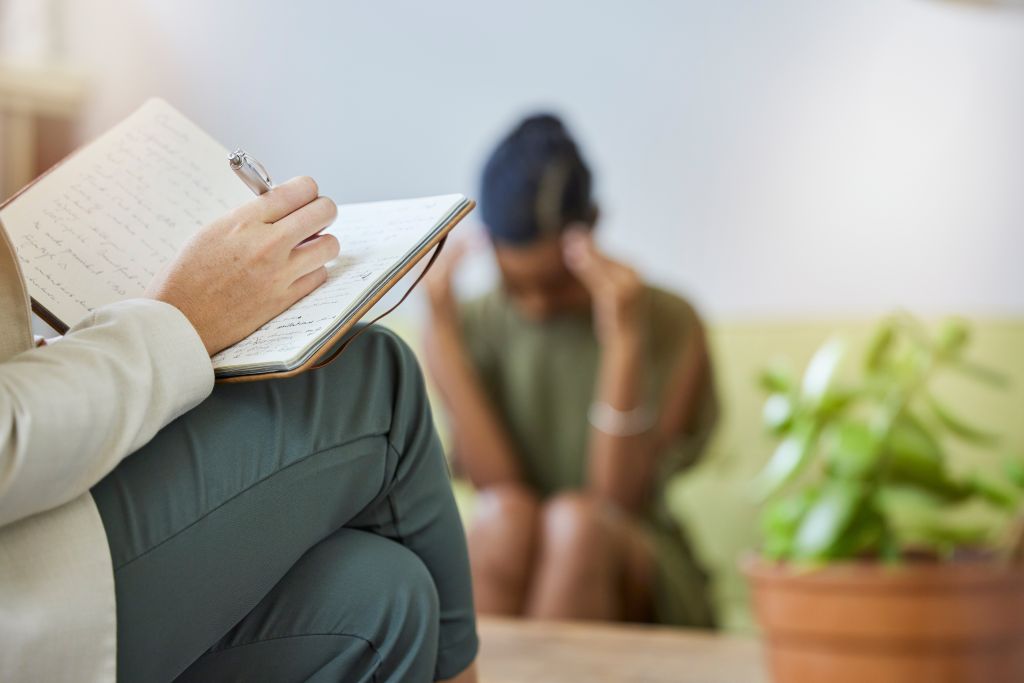Do you feel alone when it comes to your past trauma? Something that a lot of people may not realize is that trauma flashbacks can be sort of like ninjas. They’re sneaky, they’re intrusive, and above all, they’re unexpected. Even as you go about your day as usual, all it takes to interrupt it is a single word, action, or stimuli led by an outside force without any forewarning at all, and then, wham—you’re experiencing a trauma flashback.
Flashbacks are distressing for everyone, because of the true fact that it makes you feel as if the past trauma is happening to you all over again. Trauma itself takes many forms for everyone, and it’s not limited to age, gender, culture, or background. Hence, the ninja description. Also, one’s form of trauma is not going to look like the next person’s, nor the triggers that set them off and create that trauma flashback. This is one of many reasons why professional trauma counselling is both highly effective and recommended.
For those who realize they need counselling for their flashbacks and can’t wait for their appointment date to arrive, you don’t have to wait on dealing with them! That’s why we’ve written this guide on how to deal with trauma flashbacks—so that you’re better prepared for when your true healing can begin, and maybe even find some short-term relief before you take that first step forward. Because yes, trauma has happened, and your emotions surrounding it are valid and matter. Let’s cover a few mental health tips that could help you deal with your flashbacks.
Please note: while this guide does serve as a means to deal with trauma flashbacks in the short term, this should not be considered as a replacement for professional trauma recovery and therapy. Those remain essential tools for effectively dealing with trauma. Think of this as a holistic guideline to read and revisit as you move forward on your healing journey, one that complements your ongoing therapeutic support.
Gentle reminders and grounding techniques
Grounding techniques are a great way to root yourself back in reality and reestablish your connection to the present. There are multiple ways to ground yourself such as with all five of your senses. An example is to identify and acknowledge in that moment the following: 5 things you can see, 4 things you can touch, 3 things you can hear, 2 things you can smell, and 1 thing you can taste. This isn’t the only grounding technique that exists, either. A professional trauma counsellor can show you some more examples.
If you have difficulty with your senses, try gentle reminders that you can tell yourself in the moment, such as: “It’s okay. This happened, it’s in the past. My feelings then and right now are valid.” Again, this may work for some people but it might not work for everyone. Take some time to find what works best for you.
Name your feelings
Another grounding technique worth mentioning is to name your feelings as they come to you. This can also be a good practice for everyday mindfulness, i.e. observing your emotions and thoughts without judgment. Naming your emotions and applying logic to the feelings you’re experiencing during your trauma flashback can help with grounding yourself. “I feel alone, I feel angry, I feel sad,” etc. The more you can name your feelings, the more affirmative and validated you will be, and the more grounded you can become.
You don’t have to stop at just naming your feelings either. Naming the triggers of your flashbacks themselves and identifying the stimuli (ideally before you have a flashback, not during) could prepare you better for your day ahead.
Post-flashback self-care as part of your safety plan
A safety plan that involves trusted friends, family, and mental health professionals can help in the event of a trauma flashback. Self-care for the aftermath of a flashback will help reduce your anxiety and return to the present.
Self-care doesn’t always look like a spa day or chocolate or binge-watching Netflix either. In this case, think of self-care more like meditation, deep and slow breathing, listening to calm music, and journaling. Even therapy itself counts as a form of self-care for post flashbacks. Overall, whichever form of self-care you choose to include in your safety plan, ensure that a safe space is also included, such as a physical location to retreat to or a calming, comforting activity you enjoy doing and requires you to focus more on the task at hand and less on the stimuli.
You can also apply the following mental health tip for your post-flashback self-care:
Emergency contacts and support
Put together a list of emergency contacts and information such as crisis phone numbers to text and/or email addresses, either written down on paper or on your phone. Be sure to keep this list of emergency contacts close by in the event a traumatic flashback happens and it’s too much for you to deal with. This preventative tip works because it can be your best solution if your traumatic flashback is too much for you to handle in that moment.
Group sessions or one-on-one? You can decide
Let’s suppose you’ve decided to move forward with trauma counselling—if so, we’re proud of you for it! Now comes the part where you need to determine if you want to speak one-on-one with your counsellor, or if you’re ready to share your story with others.
Some people are ready to listen to others’s stories and share in the healing journey, making new connections as they go. Some aren’t quite there yet and may benefit more from getting direct help with a professional in private. There’s no wrong choice here and it’s entirely your call.
The key thing to remember is that you don’t have to let trauma keep its hold on you and your life and how you want to live it now. If you would like to learn more about trauma flashbacks and their triggers, be sure to read our guide: Managing Trauma Flashbacks: Strategies for Coping and Healing.
Some of these guidelines may not work for everyone, and that’s okay. If you keep shaking your head and saying “I’ve already done this, it’s not working, I don’t know what to do,” then that is also valid. It can also be your biggest sign that you might need to contact one of our trauma counsellors. It will be okay. We’re here for you when you’re ready.




